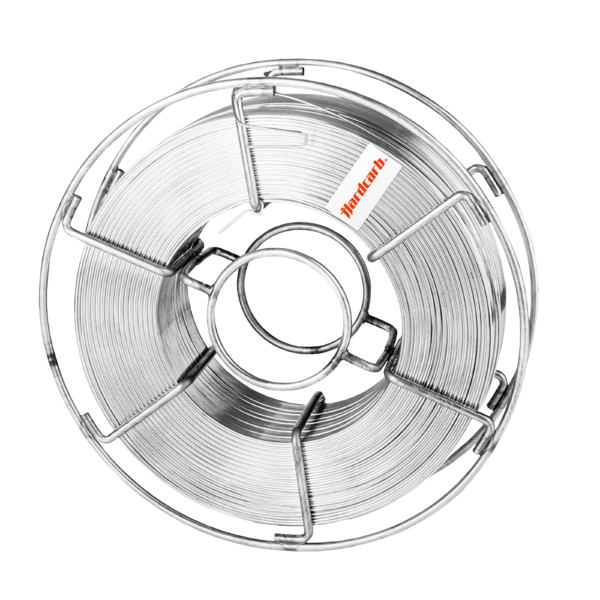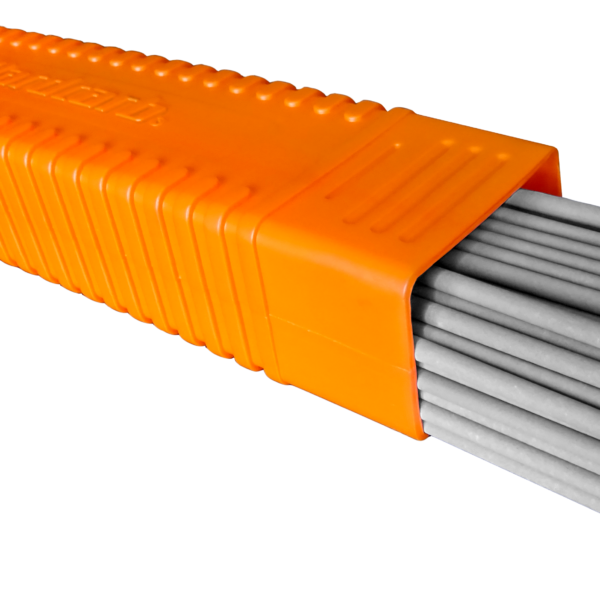Hardcarb 75


Iron base chromium-niobium martensitic alloy fortified with boron to resist a combination of abrasion, high pressure and high impact. The deposit is crack-resistant and contains high proportion of ultra-hard niobium carbides having a hardness of 2700 HV along with fine borides, thus providing good abrasion and erosion resistance.
Weld deposit characteristics:
The weld deposit is magnetic and contains high proportion of ultra-hard niobium carbides along with fine borides in a high chromium martensitic matrix. Some relief checking is normal but can be minimized or completely eliminated by use of suitable preheat.
The weld deposit provides excellent resistance to impact, gouging and grinding abrasion.
Recommended uses and applications
» hardbanding of drill pipes
» crusher jaws, hammers, rollers and blowbars
» shovel bucket teeth and lips
» bulldozer blades, scraper blades
» gyratory crusher mantles
» roller press rolls
» cane knives and automobile shredder hammers
Additional info
Anti-wear suitability
| Metal-to-Metal friction Metal surfaces in relative motion forced into contact with or without lubricant. Degradation by the formation of micro-welds between the contacting surfaces. | - |
| High pressure abrasion Wear by relative movement under pressure of mineral particles of suitable hardness, shape and texture to remove material from the metal surface, leaving superficial deformation. | Suitable |
| Cavitation Tearing out of grains from the metal surface by the formation and implosion of bubbles in a liquid in rapid motion. | - |
| Mechanical fatigue Fatigue and formation of cracks in surface regions due to tribological stress cycles that result in the separation of material. | - |
| Thermal fatigue Cyclic exposure to high temperatures leading to permanent deformation by alternate expansion and contraction. Alteration of the structure and properties of the material. | - |
| Hot oxidation Creation of a poorly adhering oxide layer that reforms constantly. Degradation by loss of material thickness. | - |
Workability
| Work hardening Work hardening is the process of making a metal harder and stronger through plastic deformation. When a metal is plastically deformed, dislocations move and additional dislocations are generated. | |
| Edge retention Suitability for creating sharp edges and retaining them during operation. | |
| Machining Machinability is the ease with which a metal can be cut (machined) permitting the removal of the material with a satisfactory finish at low cost. | Not possible. Only grinding possible. |
